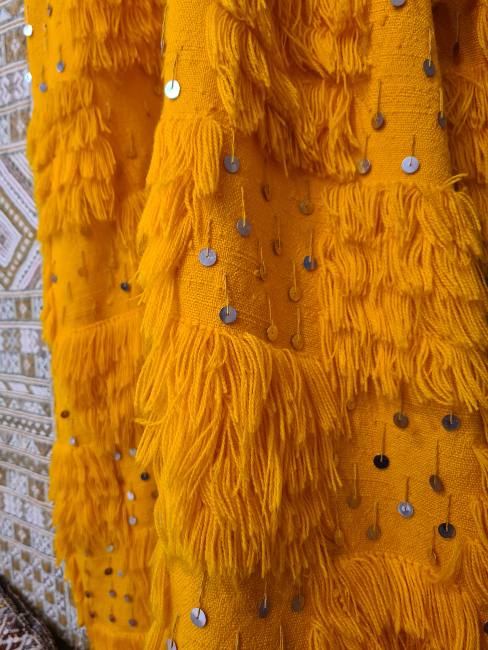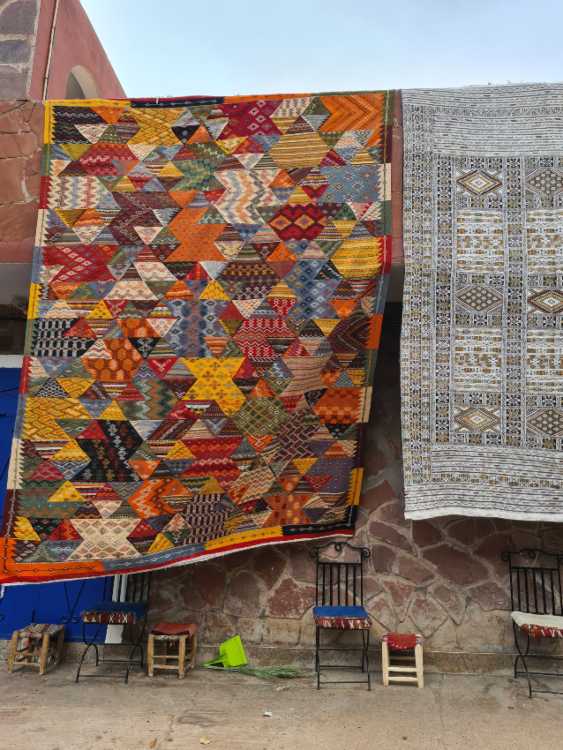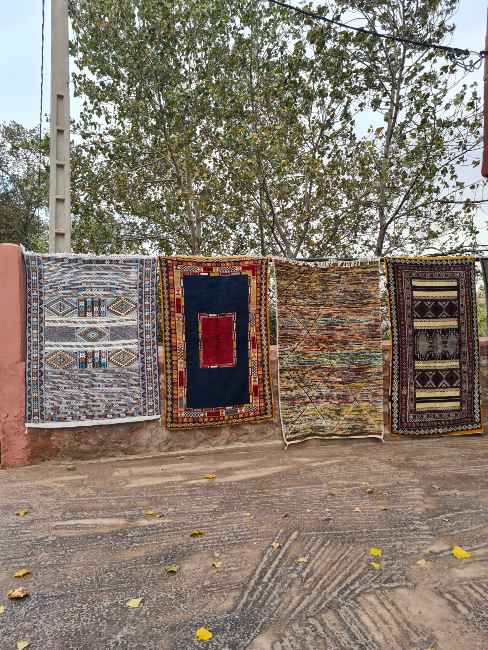Nomad rugs: what are they? How do you choose them? How do they match?
Design — Jan 21.2023
When we talk about nomad rugs, we generally refer to those textile artefacts that were made by nomadic and semi-nomadic tribes originating from different parts of the Middle East and Central Asia.
In most cases, these are ancient carpets. However, from time to time, there are also modern pieces that have a nomadic origin. Or there are contemporary carpets that have been made by taking cues and inspiration from the very patterns produced by nomadic peoples in the past.
How to recognise a nomadic carpet?
Nomad rugs have a very ancient origin and great cultural value. They are usually hand-knotted using a woollen yarn , the easiest material to obtain by tribes who regularly travelled with their animals.
In addition to sheep’s wool, carpets created by the craftsmen of nomadic peoples were also made from goat, camel and yak wool. Traditionally, the work of weaving the wool and knotting the carpets was entrusted to the women of the tribe, who had the task of conceiving, designing and producing the artefacts, which would be used by the entire community.
Alongside hand-knotted carpets, the semi-nomadic tribes also started to make hand-woven pieces, e.g. kilims, using small looms. Often, this type of artefact was smaller in size than the knotted ones and was mainly used for decorative purposes within tents and camps.
For the nomadic populations of North Africa, carpet production was also very important. In addition to Berber artefacts, with their characteristic minimal design, alternating the use of black and white wools, the creation of embroidered carpets is also worth mentioning.
While today we think of carpets exclusively as decorative elements, in nomadic tribes, carpets accompanied the life of the community, performing several important practical functions. For example, thicker, stronger carpets were used to insulate the floors and walls of camps. Other, thinner, artefacts were used as saddles. Still others were used to wrap objects to be transported while on the move.
Today, as in the past, nomad rugs are made using craft techniques. The designs are quite simple and are made with dyed yarns using colours mostly obtained from plants. Over time, differences developed in the designs of artefacts made in different geographical areas. For example, Persian nomad rugs are generally richer in detail and symbols than those produced in the Caucasus, Anatolia and Turkestan areas.

How to decorate with nomad rugs? Here are the best tips
Antique nomad rugs and modern models that are inspired by those made in the past are products that are distinguished not only by their original design, but also by the high quality of the fibres and workmanship, and their durability. In modern interior design, these artefacts can be used to enrich the floor of an important room in the home, but can also be used to decorate a wall. The woven models, on the other hand, which are thinner and lighter, are ideal for incorporating a striking wall decoration in the home.
We have already mentioned that, for the nomadic tribes of the East, carpets were an extremely versatile and useful product for organising their daily lives. Today, designers and interior decorators resort to nomad rugs mainly when they need to enhance the personality of a room in the house. And when they wish to add a unique piece to the décor, one that has both artistic and historical value.
What other observations can be made about these wonderful textiles? Traditional nomad rugs have decorations that fit very well in different contexts. The geometric, floral decorations and stylised symbolic figures that characterise this type of carpet can embellish the furnishings of various spaces in the home, from the entrance hall to the living area, passing through corridors and into bedrooms.

How can nomad rugs be used to enhance the interior design of a furnishing project?
Furnishing with an authentic nomadic carpet requires great care. Why do we say this? It’s simple: in addition to carefully assessing the originality and value of the pattern, it is necessary to structure the project so that the carpet is at its centre and to choose furniture that enhances the characteristics and peculiarities of the artefact.
Some examples of this? The bold colours and elaborate decorations of carpets produced by nomadic Persian orgone craftsmen go very well with furniture with traditional lines and are perfect for a room furnished in an ethnic style. In some cases, these nomad rugs can also become the centrepiece of spaces furnished in a contemporary style with minimal furniture.
One last tip. The originality of a nomadic carpet can also be enhanced in a maximalist environment or in a furnishing project that focuses on original stylistic choices.
Nodus creates prestigious rugs.
Bring luxury into your home!
>>> CONTACT US! <<<
![]() Nodus has reinvented the luxury rug. It was in fact the first brand to propose the concept of the rug as a work of contemporary art.
Nodus has reinvented the luxury rug. It was in fact the first brand to propose the concept of the rug as a work of contemporary art.
Nodus has always created exclusive products that furnish the most beautiful homes in the world. Do you want to make your home inimitable as a work of art?
Bring a hand knotted rug of the highest quality and design into the spaces of your daily life! Give your family and the people you love the beauty of a dream masterpiece! Every piece of Nodus is designed by famous Designers, making it recognisable and prestigious. In this way, each rug is unique: you will not find another one like it. Like all beautiful and unrepeatable things, one piece in the Nodus collection sets you apart and speaks to others about your taste and elegance. CONTACT US!